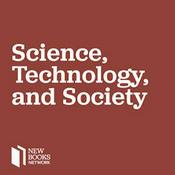How Taiwan rose to global prominence in high tech manufacturing, from computer maker to the world's leading chip manufacturer. How did Taiwan, a former Japanese colony and the last fortress of the defeated Chinese Nationalists, ascend to such heights in high-tech manufacturing? In Island Tinkerers: Innovation and Transformation in the Making of Taiwan's Computing Industry (MIT Press, 2024), Honghong Tinn tells the critical history of how hobbyists and enthusiasts in Taiwan, including engineers, technologists, technocrats, computer users, and engineers-turned-entrepreneurs, helped transform the country with their hands-on engagement with computers. Rather than engaging in wholesale imitation of US sources, she explains, these technologists tinkered with imported computing technology and experimented with manufacturing their own versions, resulting in their own brand of successful innovation.
Defying the stereotype of “the West innovates, and the East imitates,” Tinn tells the story of Taiwanese technologists' efforts over the past six decades. Beginning in the 1960s, they grappled with the “black-boxed” computers that were newly available through international technical-aid programs. Shortly after, multinational corporations that outsourced transistor and integrated circuit assembly overseas began employing Taiwanese engineers and factory workers. Island tinkerers developed strategies to adapt, modify, assemble, and work with computers in an inventive manner. It was through this creative and ingenious tinkering with computers that they were able to gain a better understanding of the technology, opening the door to future manufacturing endeavors that now include Acer, Foxconn, Asus, and Taiwan Semiconductor Manufacturing Company (TSMC).
Honghong Tinn is Assistant Professor in the Program in the History of Science, Technology, and Medicine and the Department of Electrical and Computer Engineering at the University of Minnesota, Twin Cities.
Li-Ping Chen is a visiting scholar in the Department of East Asian Languages and Cultures at the University of Southern California. Her research interests include literary translingualism, diaspora, and nativism in Sinophone, inter-Asian, and transpacific contexts. Li-Ping’s NBN episodes on Taiwan Studies are supported by the Chun and Jane Chiu Family Foundation Taiwan Studies Program at Oregon State University.
Relevant Links:
Open Access for Island Tinkerers here
Island Tinkerers’ Book Talk with Honghong Tinn here
Chinese language translation of Island Tinkerers 科技造浪者: 一部奇蹟般的台灣科技產業史,揭開全球都想知道的人脈網絡 here
Fly up with Love (1978) here
“Labour and (De)Industrialisation in East Asia” in Gateway To Global China Podcast here
Learn more about your ad choices. Visit megaphone.fm/adchoices
Support our show by becoming a premium member! https://newbooksnetwork.supportingcast.fm/science-technology-and-society

